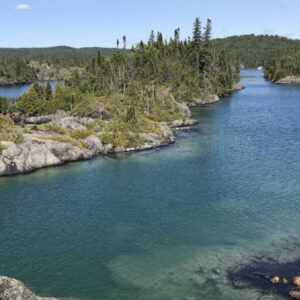Image Caption: This image from the NASA Earth Observatory shows zones in the ocean where oxygen levels have dropped so low that these have become complete “dead zones”. However, the zones marked here should not lead one to believe that ocean transformation is limited to these places. As the Oceans Report indicates, the entire Ocean as a system and connected to the Earth System are threatened.
The verdict couldn’t be clearer: we are destroying and degrading the Ocean at a pace not even anticipated by the experts just two years ago.
This is the forecast of the Global State of the Oceans Report, produced by a body of the world’s leading marine scientists along with international marine governance officials. The report takes a holistic, “earth systems” approach to studying the state of the oceans, as opposed to artificially isolating problems into specific locales or species.
The ocean makes up one of the primary systems in Earth’s overall ecological system, and the report acknowledges that its role as an overall regulator is being compromised by human activity.
The report warns, “the window of opportunity to take action is narrow. There is little time left in which we can still act to prevent irreversible, catastrophic changes to marine ecosystems as we see them today.”
Many may think that the most immediate threats to the ocean are coming from industrial pollutants and overfishing – which are indeed major problems. The 80-90 million tons of fish caught every year is rapidly depleting fish stocks and the larger food webs they are a part of. Meanwhile, pollutants from profit-driven industrial activities and agricultural run-off are depleting the oxygen levels in in the ocean and creating large “dead zones”.
Yet, the greatest threat of all to the Ocean’s role in the earth system is climate change. As carbon emissions rise, so too is the extent to which they are absorbed by the ocean, which is leading to ocean acidification with disastrous consequences for marine life.
Yet, while the writing on the wall spells out Earth-system collapse if drastic changes are not made to our economy’s relationship to Mother Earth, the report falls short of proposing the radical solutions needed, pointing instead in the direction of policy actions which are the equivalent of re-arranging deck chairs on the titanic. It comes as little surprise, given the reports main audience are “policy makers,” which is to say mostly people invested in the status quo.
The report concludes “Without decisive and effective action, no region or country will be immune from the socioeconomic upheaval and environmental catastrophe that will take place – possibly within the span of the current generation and certainly by the end of the century. It is likely to be a disaster that challenges human civilization.”







Comments are closed.